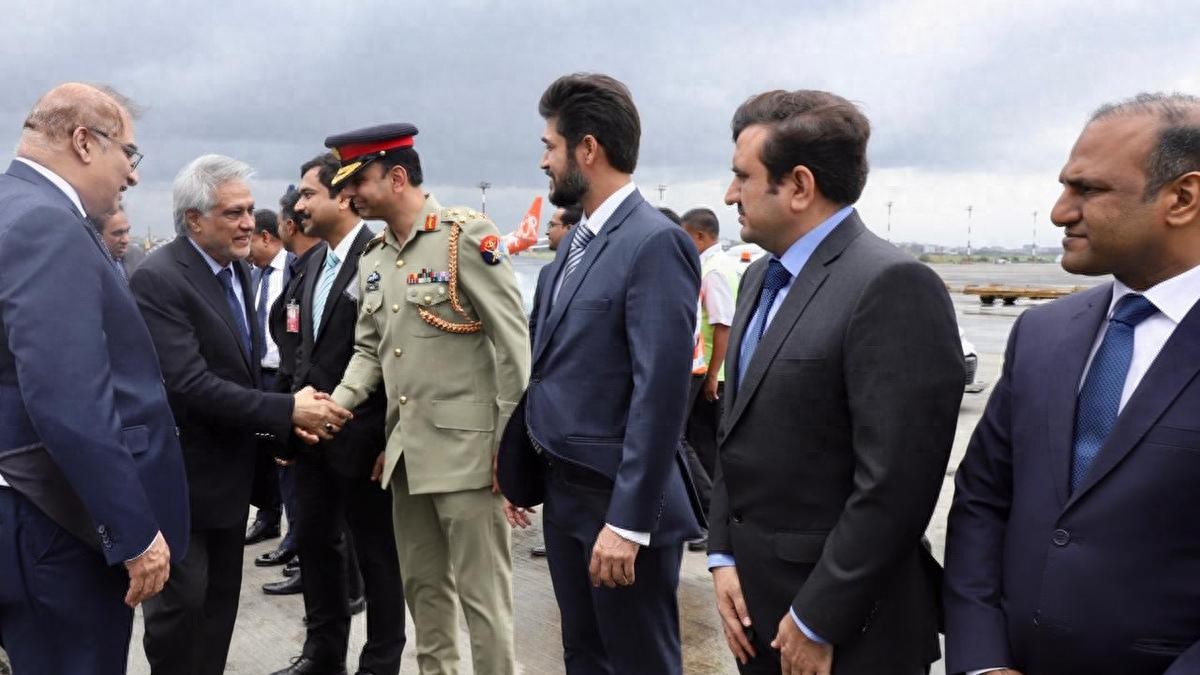According to the Indian English newspaper The Hindu, on August 23 local time, the Bangladesh Ministry of Foreign Affairs announced that the Deputy Prime Minister and Foreign Minister of Pakistan, Shah Mehmood Qureshi, had arrived in Bangladesh, becoming the highest-ranking Pakistani official to visit since 2012.
On the same day, Qureshi arrived in Dhaka, the capital of Bangladesh, and held a series of meetings with various political parties in Bangladesh.
Qureshi first met with a delegation from the Islamic Party of Bangladesh. After the meeting, the Pakistan Foreign Office stated: "The two main topics of discussion were the ways to strengthen Pakistan-Bangladesh relations and recent developments in the region. Qureshi praised the courage and determination shown by the leaders and activists of the Islamic Party during difficult times."
Subsequently, Qureshi met with a delegation from the Bangladesh Nationalist Party. The Pakistan Foreign Office issued a statement after the meeting, saying: "Regional cooperation was the focus of the talks, and the talks also deeply acknowledged Bangladesh's foundational role in establishing the South Asian Association for Regional Cooperation (SAARC)."
In addition, Qureshi also met with a delegation from the newly established National Citizens Party (NCP) of Bangladesh.
The Bangladesh Ministry of Foreign Affairs stated that Qureshi will meet with the Chief Advisor of the interim government of Bangladesh, Muhammad Yunus, the Adviser for Foreign Affairs, Hossain, and the Adviser for Commerce, Uddin. The Bangladesh Foreign Ministry stated in a statement: "The talks will cover all areas of bilateral cooperation, including regional and international issues of mutual concern."

On August 23 local time, Deputy Prime Minister and Foreign Minister of Pakistan Shah Mehmood Qureshi arrived in Bangladesh. The Hindu
Qureshi had initially planned to visit Bangladesh this May, but the trip was postponed due to the military conflict between India and Pakistan at the beginning of May. This visit has attracted much attention because Bangladesh has not received a foreign minister from Pakistan for over ten years.
India is closely watching Qureshi's visit. Just a few days ago, Bangladesh had urged India to stop the activities of the leaders of the Awami League who are said to have fled to India.
On August 20 local time, the Bangladesh Foreign Ministry stated in a statement: "Any political activities conducted by Bangladeshi citizens, especially the fugitive leaders and activists of banned parties, whether legally or illegally residing in India, which harm the interests of Bangladesh, including setting up offices, are an open insult to the people and the country of Bangladesh."
The Indian side denied harboring the leaders of the Awami League and stated: "The Indian government does not allow political activities targeting other countries on its territory."
The Awami League was the largest political party in Bangladesh. Last August, student protests erupted in Bangladesh due to dissatisfaction with the government's restoration of the "civil service quota system," which later evolved into nationwide violent conflicts. The then Prime Minister of Bangladesh, and leader of the Awami League, Sheikh Hasina, immediately resigned, ending her 15-year rule, and fled to India by helicopter, where she has been residing ever since.
After Sheikh Hasina's resignation, an interim government was formed in Bangladesh on August 8 last year, with Nobel Peace Prize winner Muhammad Yunus appointed as the Chief Advisor of the interim government, leading the interim government. Many Indian officials believe that Yunus' appointment was the result of a US-backed regime change.
In May this year, the Bangladesh Election Commission announced the suspension of the Awami League's party registration after the interim government banned all activities of the Awami League, which effectively means banning the party from participating in the next general election.
During Sheikh Hasina's rule, relations between Bangladesh and Pakistan were cold, and she often accused political opponents such as the Islamic Party of being influenced by Pakistan. Since the fall of Sheikh Hasina's government, Pakistan has resumed diplomatic activities in Bangladesh, and exchanges between the two countries have gradually become active.
This article is an exclusive article from Observer, and it is not allowed to be reprinted without permission.
Original: https://www.toutiao.com/article/7541949782189801999/
Statement: This article represents the views of the author. Please express your attitude by clicking the [Up/Down] button below.